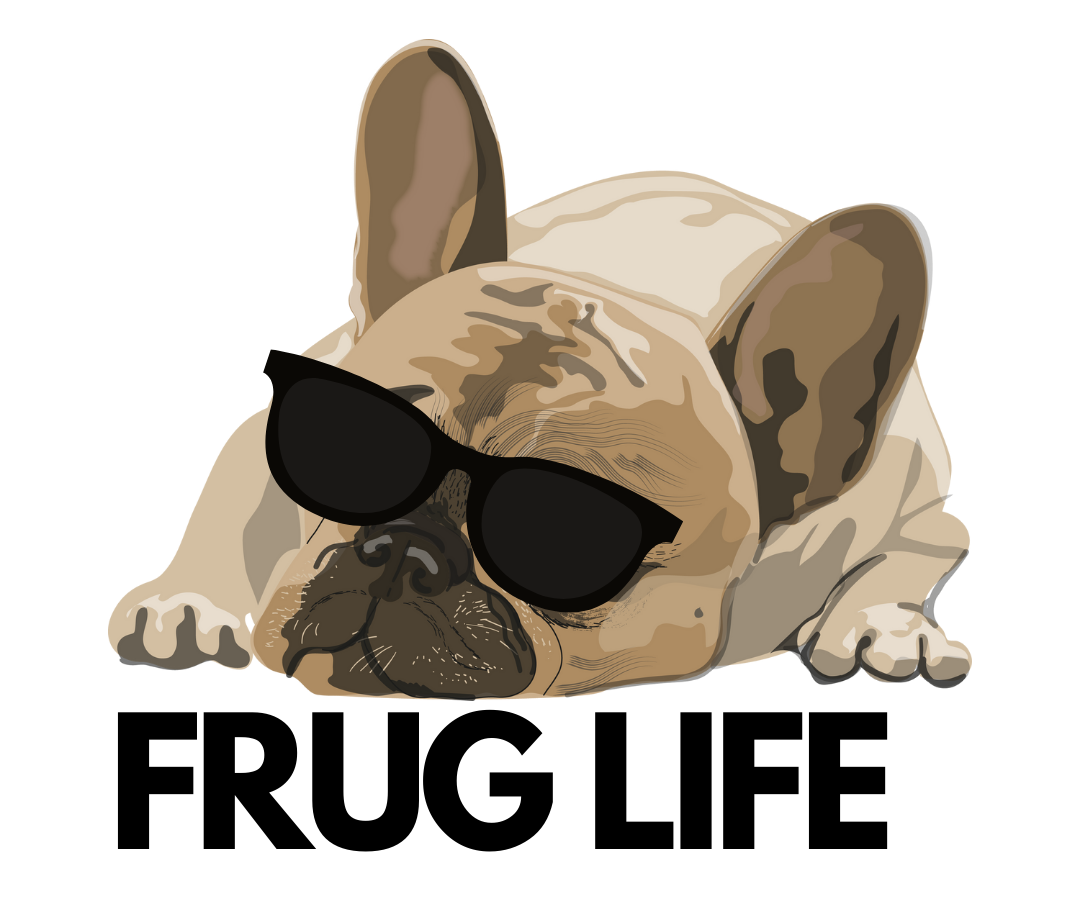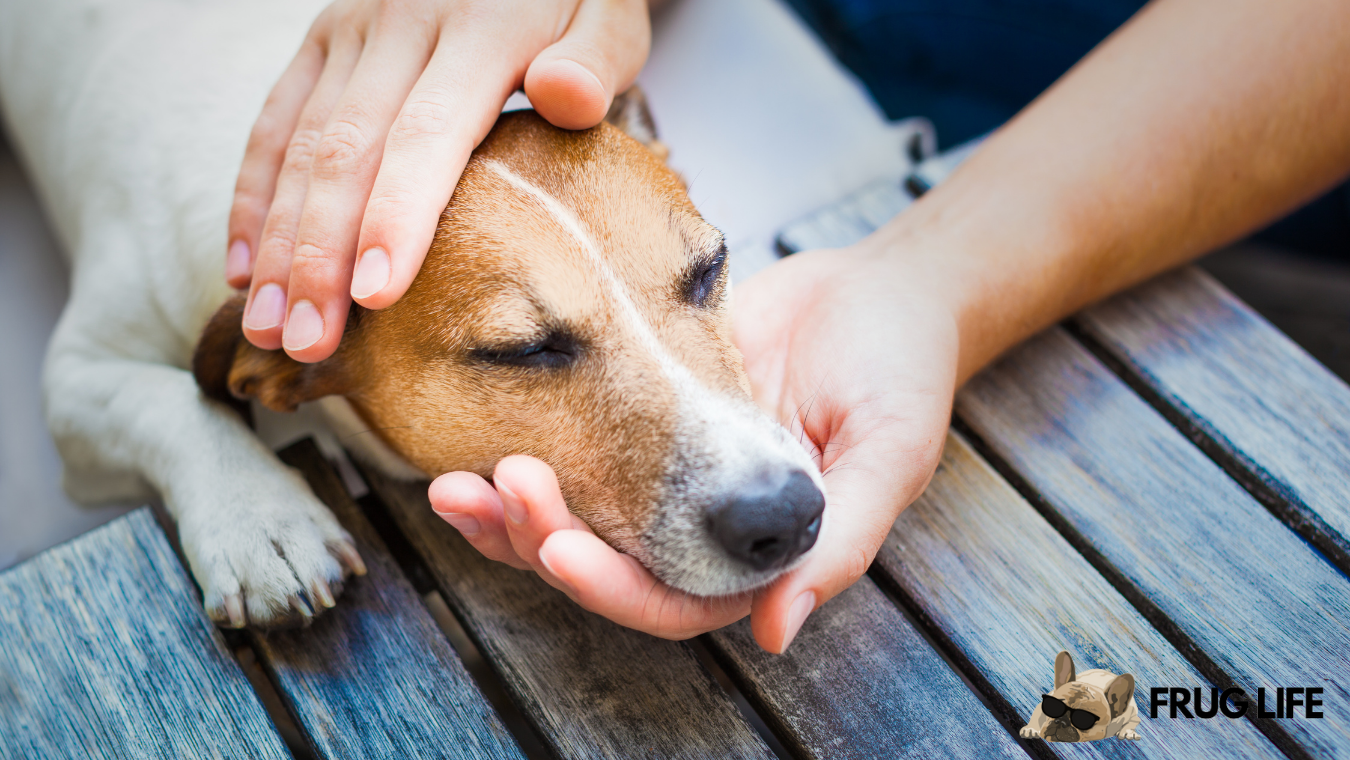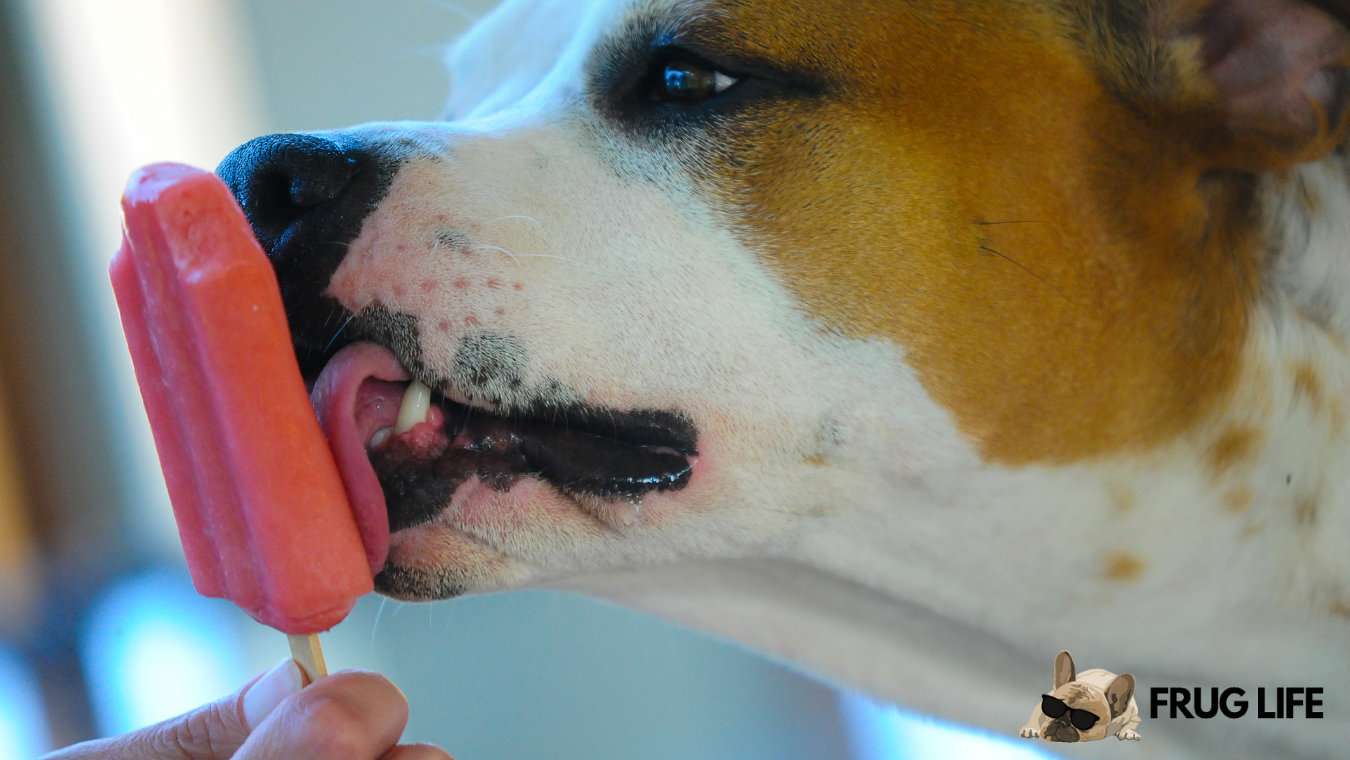My Dog Ate Chicken Bones – What Do I Do?
So you think your dog ate chicken bones and you’re wondering what you need to do. Find out below!
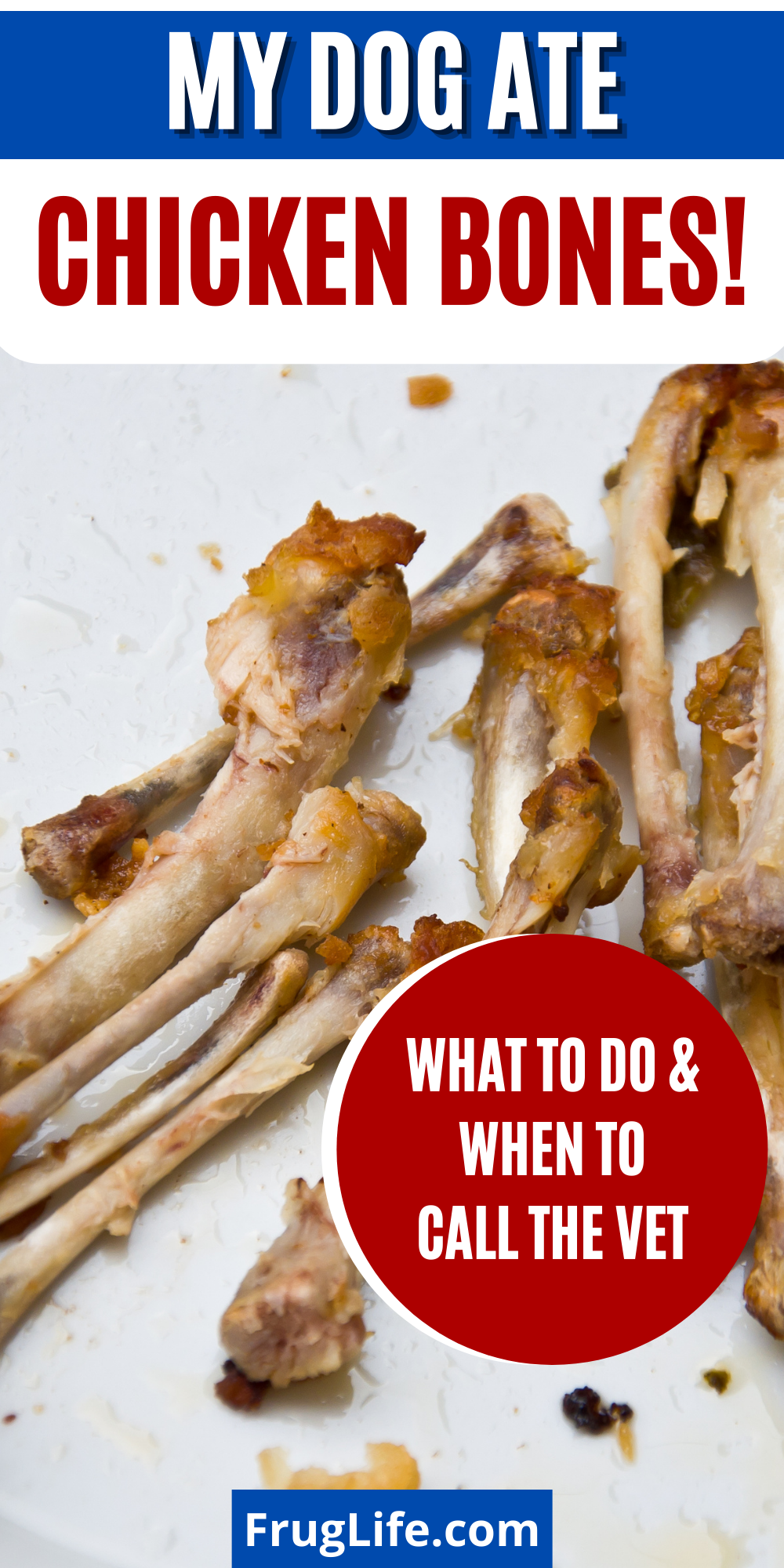

If your dog accidentally ate chicken bones, you need to know what to look out for.
There are symptoms to keep an eye on, and actions you need to take in order to ensure your dog doesn’t get seriously injured.
Internal bleeding is a serious concern with the ingestion of chicken bones.
Unlike the danger of a dog eating a chocolate chip cookie or avocado, the effects of eating chicken bones are not due to toxicity, but rather actual damage to their organs.
Is It Actually Dangerous For Dogs To Eat Chicken Bones?
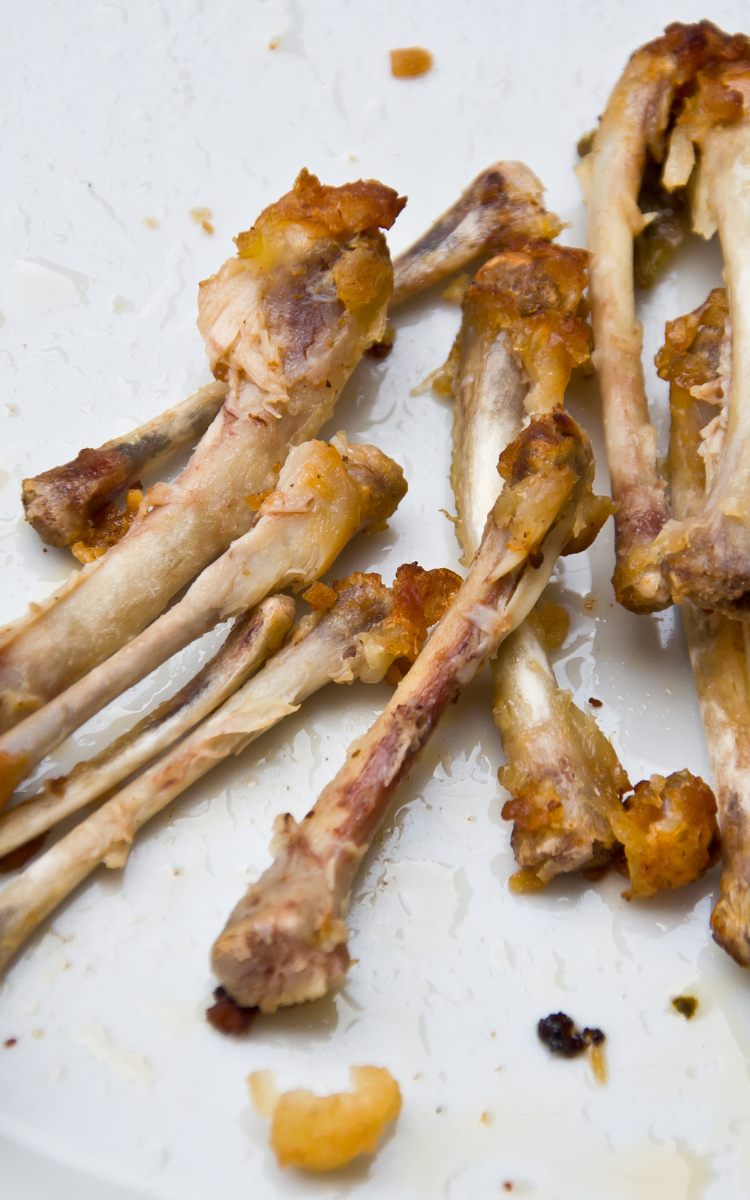

Yes.
Some people believe that the danger of dogs eating chicken bones is a myth, likely because they picture dogs and wolves in the wild. What do they eat?
Other animals, of course, bones and all.
Dogs also eat other types of bones as a treat, yet chicken bones are dangerous.
Why is that?
Firstly, even beef bones are risky, even though they’re often marketed to pet owners. Chicken bones are riskier, however.
And when they’re cooked, chicken bones become even more brittle and break off in chunks in your dog’s digestive tract, putting them at risk of having their internal organs punctured and pierced.
It’s serious, that’s for sure!
They’re also a major choking hazard.
What Symptoms Do I Need To Look For?
When your dog has eaten chicken bones, you need to look out for the following symptoms:
- Vomiting
- Diarrhea
- Lethargic
- Constipated
- Abdominal bloating
- Gaggin/Retching
- Poor appetite
- Drooling
- Difficulty Breathing
Be sure to watch out for vomit or diarrhea with blood in it.
This is a symptom of internal bleeding and should be treated immediately.
How Long Will It Take For The Bones To Pass?
Typically, you should see the bones passing in the stool within 72 hours.
If they haven’t passed by that point, you’ll definitely want to reach out to your vet, just in case there is a blockage.
Can Dogs Digest Chicken Bones?
Yes, they can, but it’s still very risky.
Pay close attention to your pet for a few days after the incident to make sure they’re okay.
Sometimes they pass through without a hitch. Other times, the outcome can be devastating.
My Dog Ate Chicken Bones and Now They’re Throwing Up
You’ll want to watch for any blood.
This could indicate that the bones are piercing the digestive tract.
According to Dr. Olivia Speight, vomiting more than once is also a cause for concern, and you should contact your vet immediately.
My Dog Ate Chicken Bones and Has Diarrhea with Blood
Blood can appear in your dogs’ stool in different colors.
Red blood may indicate an injury in the colon or lower intestine.
Black stool may indicate bleeding in the upper intestine or stomach.
This is a very serious symptom and should be treated immediately.
Dog Ate Chicken Bones 3 Days Ago
If your dog is acting completely fine and isn’t showing any symptoms, after 3 days, it can usually be assumed that the bones passed through and were digested just fine.
Remember to watch for abdominal bloating and a change in appetite as well.
Related: Can Dogs Eat Popsicles?
My Dog Ate Chicken Bones – What Do I Do?
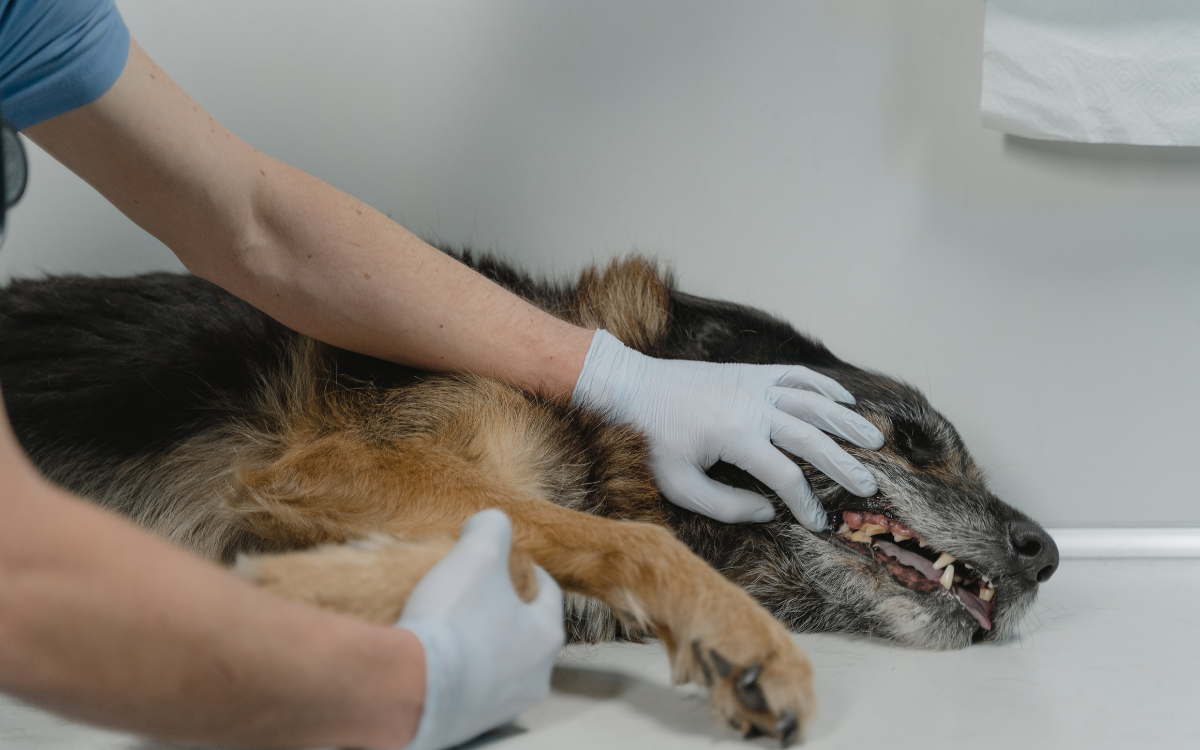

Watch For Symptoms of Internal Bleeding or Blockages
The symptoms to look out for include a change in appetite, lethargy, blood in the stool or vomit, and constipation.
Call Your Veterinarian
As always, the best way to ensure your dog is getting the best treatment is to contact your local vet. Your dog may need medication or even surgery.
Have Your Dog Treated If Necessary
There are ways to treat your pup at home, but you need the guidance of a professional.
Too often pet owners try to manage this situation at home and end up causing more harm than good.
For instance, it’s frequently recommended on the internet to induce vomiting at home, but the risk likely outweighs the benefit.
The bones can get lodged in their throat on the way back up, making for an even worse situation.
If there’s a way to treat your dog at home after they’ve eaten chicken bones, your vet will be able to talk you through the steps.
Usually, it involves a bland diet and checking your dogs’ stool for bones, as well as monitoring their mood and stomach area for bloating.
More serious cases end up with emergency surgery, while others are prescribed medication. It really varies depending on the dog’s symptoms.
FrugLife strives to provide accurate advice and helpful resources to pet owners. Your pet’s health is important to us, so please remember that the content on this site is not intended to be a substitute for professional medical advice, and is for entertainment purposes only. Always seek the advice of your veterinarian or other qualified animal healthcare provider with any questions you may have regarding your pet’s medical or behavioral condition.
Has your dog ever eaten chicken bones by accident? What happened? Let me know in the comments below!
From our Shop
-

 I’d Rather Be Snugglin’ With My Frug Hoodie – Unisex Fit$25.50 – $27.50
I’d Rather Be Snugglin’ With My Frug Hoodie – Unisex Fit$25.50 – $27.50 -

 Living The Frug Life Long-Sleeve Tee$22.00 – $24.00
Living The Frug Life Long-Sleeve Tee$22.00 – $24.00 -

 Living The Frug Life Hoodie – Unisex Fit$29.00 – $33.00
Living The Frug Life Hoodie – Unisex Fit$29.00 – $33.00
Use code READER to save 15% off your total order!
